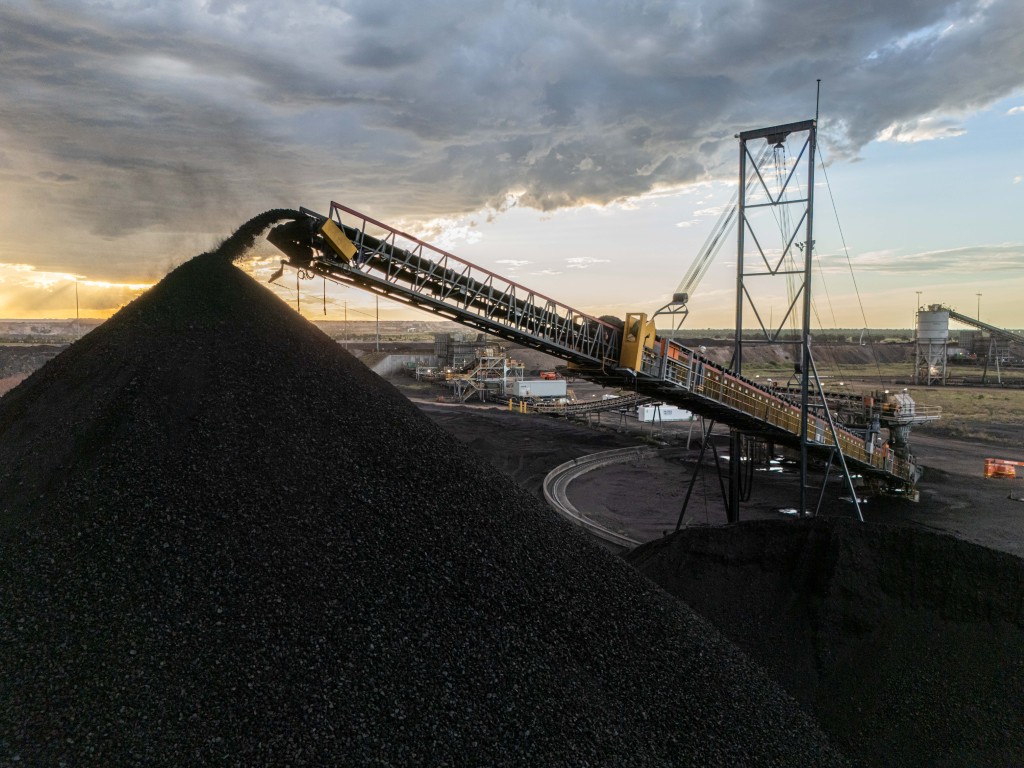

Central Queensland’s Carmichael coal mine is set for a major expansion, with Bravus Mining and Resources awarding a A$2 billion services contract and committing to a half-billion-dollar investment to lift output by a third over the next four years.
The mining company announced it has appointed MacKellar Group as the principal mining services contractor at Carmichael for the next five years. The agreement, valued at about A$2 billion, includes performance incentives aimed at maximising efficiency and production at the open-cut thermal coal mine near Clermont.
Bravus Chief Operating Officer Mick Crowe said the deal secures operational stability while ensuring continuity for MacKellar’s 1,000-strong workforce. “This decision secures the operational efficiency of Carmichael for today and sets a platform for growth in the future,” he said. “It also gives workers who travel from Townsville, Rockhampton, the Isaac Region, Cairns and Mackay confidence about their futures, and that’s something we’re very proud of.”
The Carmichael mine, developed by the Adani Group under its Australian subsidiary Bravus, has paid more than A$2 billion to regional Queensland contractors and businesses since breaking ground in 2019. The mine began operations in 2022 and has ramped production up to more than 10 million tonnes per annum.
Bravus now plans to boost that capacity to 16 million tonnes annually by 2029, citing growing global demand for thermal coal, particularly in Asia. The company said the increase will create hundreds of new jobs during the construction phase and generate fresh opportunities for suppliers across Central and North Queensland.
“Our investment in the infrastructure to support this growth means more contracts for local businesses and more high-paying mining industry jobs for people living in places like Clermont, Rockhampton, Mackay, Bowen, Townsville, and Cairns,” Crowe said. “It also means Carmichael will remain strategically positioned to efficiently deliver high-quality Queensland thermal coal to the global seaborne market at scale.”
The expansion will involve upgrades to the mine’s accommodation village, construction of a new water dam, a rail network maintenance hub, and other site infrastructure. Bravus has committed A$50 million toward these works as part of a broader A$500 million capital program.
Queensland’s newly elected Crisafulli Government has heralded the investment as a sign of renewed confidence in the state’s resources sector. Premier David Crisafulli described it as “sending a strong signal that Queensland is open for business because we are serious about delivering a better lifestyle through a stronger economy.”
Regional MPs echoed the sentiment. Nigel Dalton, Member for Mackay, said the expansion would have ripple effects beyond the mine gate.
“This expansion means more business for our local suppliers, more apprenticeships for our young people and more certainty for families who rely on the mining industry,” he said.
“Every job on site supports additional jobs in towns like Mackay, from manufacturers in Paget to the small businesses that keep our workforce moving.”
Glen Kelly, Member for Mirani, said the decision showed that “Queensland is open for business” and claimed it would create opportunities for younger generations.
“These 600 new jobs will benefit all of Central Queensland and see flow-on benefits to businesses in the region,” he said.
“This just creates more opportunity for the next generation to find a job and build their skills.”
Government ministers also emphasised global market trends. Dale Last, Minister for Natural Resources and Mines, said strong demand for high-quality coal was expected to continue for many years. He said that “more than 400 coal-fired power stations are under construction around the world, mostly in China, India and South-East Asia, and Queensland’s Galilee Basin is well positioned to meet that demand.”
Last also criticised what he described as “the former Labor Government’s unpredictable anti-mining policies,” which he argued had damaged investor confidence. Those comments reflect longstanding political divisions over the Carmichael project, which faced protracted legal and environmental challenges during its development.
Labor has maintained that its tiered coal royalty system, introduced in 2022, ensures Queenslanders receive a fairer return from resources projects. The Crisafulli Government has said it will not alter those tiers but has sought to draw a distinction by stressing what it calls “stable and calm governance.”
With Carmichael now firmly embedded in the state’s coal-export portfolio, Bravus is betting that scale, efficiency, and continued political support will keep the mine producing for decades to come.
Coal mining operations at Bravus Mining and Resources’ Carmichael mine near Clermont in central Queensland. Photos supplied